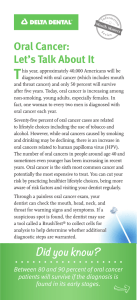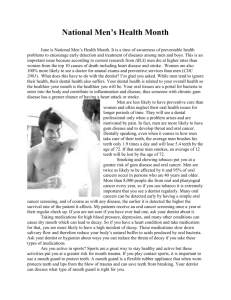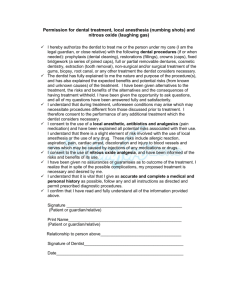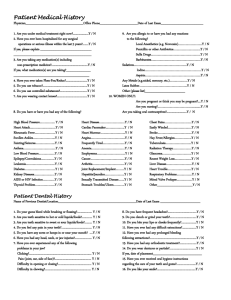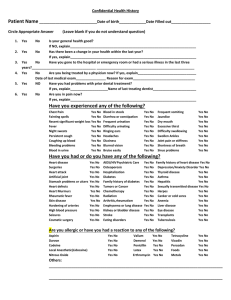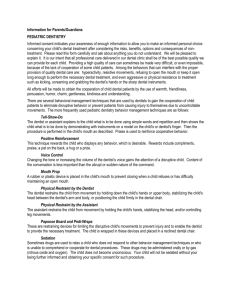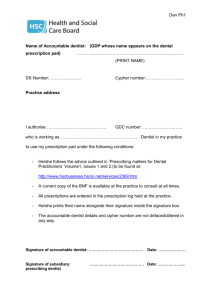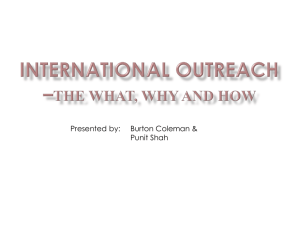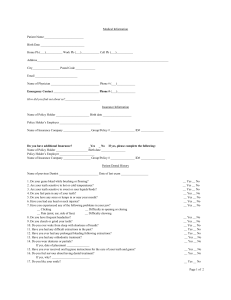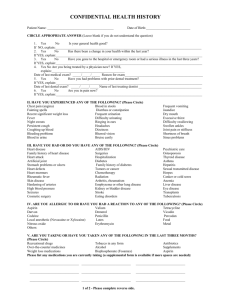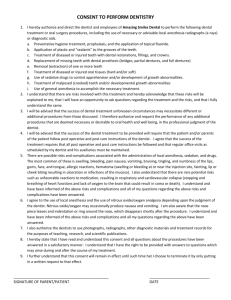More Than Just A Dental Checkup
advertisement
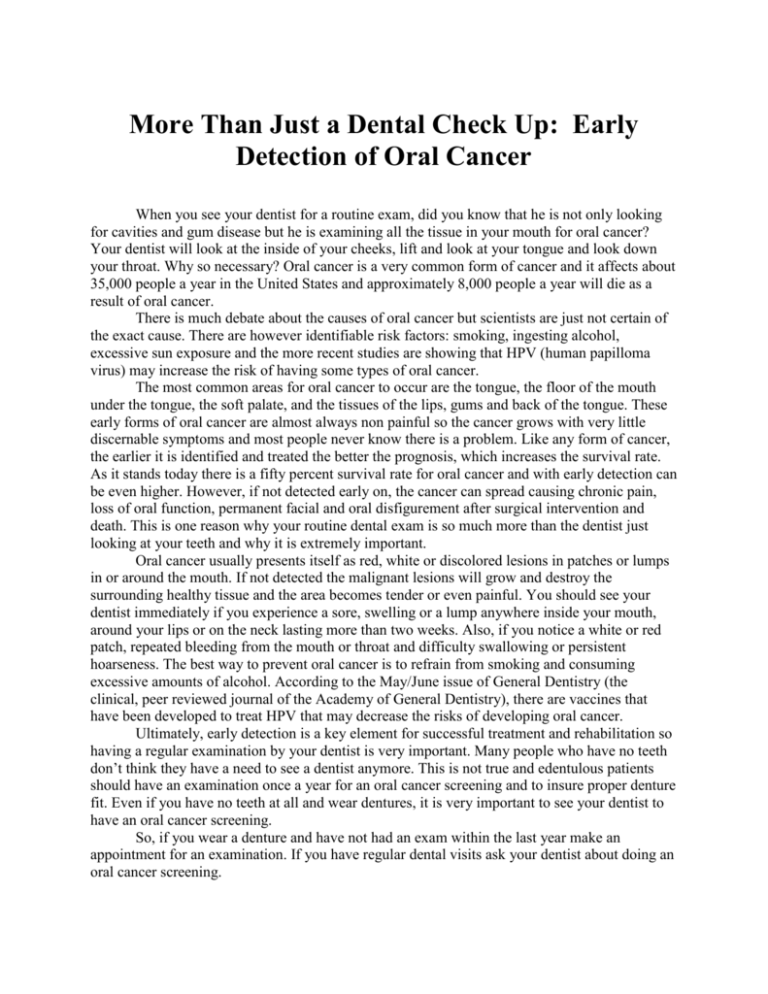
More Than Just a Dental Check Up: Early Detection of Oral Cancer When you see your dentist for a routine exam, did you know that he is not only looking for cavities and gum disease but he is examining all the tissue in your mouth for oral cancer? Your dentist will look at the inside of your cheeks, lift and look at your tongue and look down your throat. Why so necessary? Oral cancer is a very common form of cancer and it affects about 35,000 people a year in the United States and approximately 8,000 people a year will die as a result of oral cancer. There is much debate about the causes of oral cancer but scientists are just not certain of the exact cause. There are however identifiable risk factors: smoking, ingesting alcohol, excessive sun exposure and the more recent studies are showing that HPV (human papilloma virus) may increase the risk of having some types of oral cancer. The most common areas for oral cancer to occur are the tongue, the floor of the mouth under the tongue, the soft palate, and the tissues of the lips, gums and back of the tongue. These early forms of oral cancer are almost always non painful so the cancer grows with very little discernable symptoms and most people never know there is a problem. Like any form of cancer, the earlier it is identified and treated the better the prognosis, which increases the survival rate. As it stands today there is a fifty percent survival rate for oral cancer and with early detection can be even higher. However, if not detected early on, the cancer can spread causing chronic pain, loss of oral function, permanent facial and oral disfigurement after surgical intervention and death. This is one reason why your routine dental exam is so much more than the dentist just looking at your teeth and why it is extremely important. Oral cancer usually presents itself as red, white or discolored lesions in patches or lumps in or around the mouth. If not detected the malignant lesions will grow and destroy the surrounding healthy tissue and the area becomes tender or even painful. You should see your dentist immediately if you experience a sore, swelling or a lump anywhere inside your mouth, around your lips or on the neck lasting more than two weeks. Also, if you notice a white or red patch, repeated bleeding from the mouth or throat and difficulty swallowing or persistent hoarseness. The best way to prevent oral cancer is to refrain from smoking and consuming excessive amounts of alcohol. According to the May/June issue of General Dentistry (the clinical, peer reviewed journal of the Academy of General Dentistry), there are vaccines that have been developed to treat HPV that may decrease the risks of developing oral cancer. Ultimately, early detection is a key element for successful treatment and rehabilitation so having a regular examination by your dentist is very important. Many people who have no teeth don’t think they have a need to see a dentist anymore. This is not true and edentulous patients should have an examination once a year for an oral cancer screening and to insure proper denture fit. Even if you have no teeth at all and wear dentures, it is very important to see your dentist to have an oral cancer screening. So, if you wear a denture and have not had an exam within the last year make an appointment for an examination. If you have regular dental visits ask your dentist about doing an oral cancer screening.

